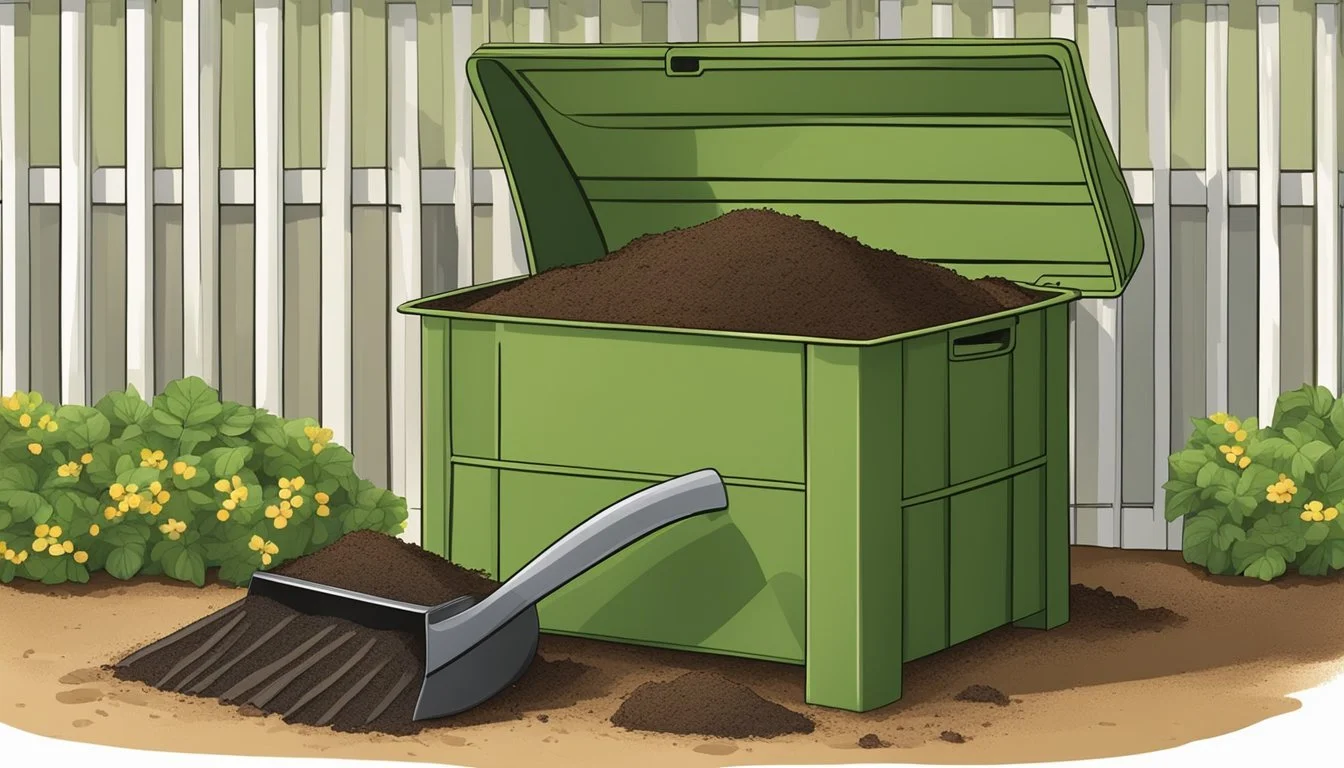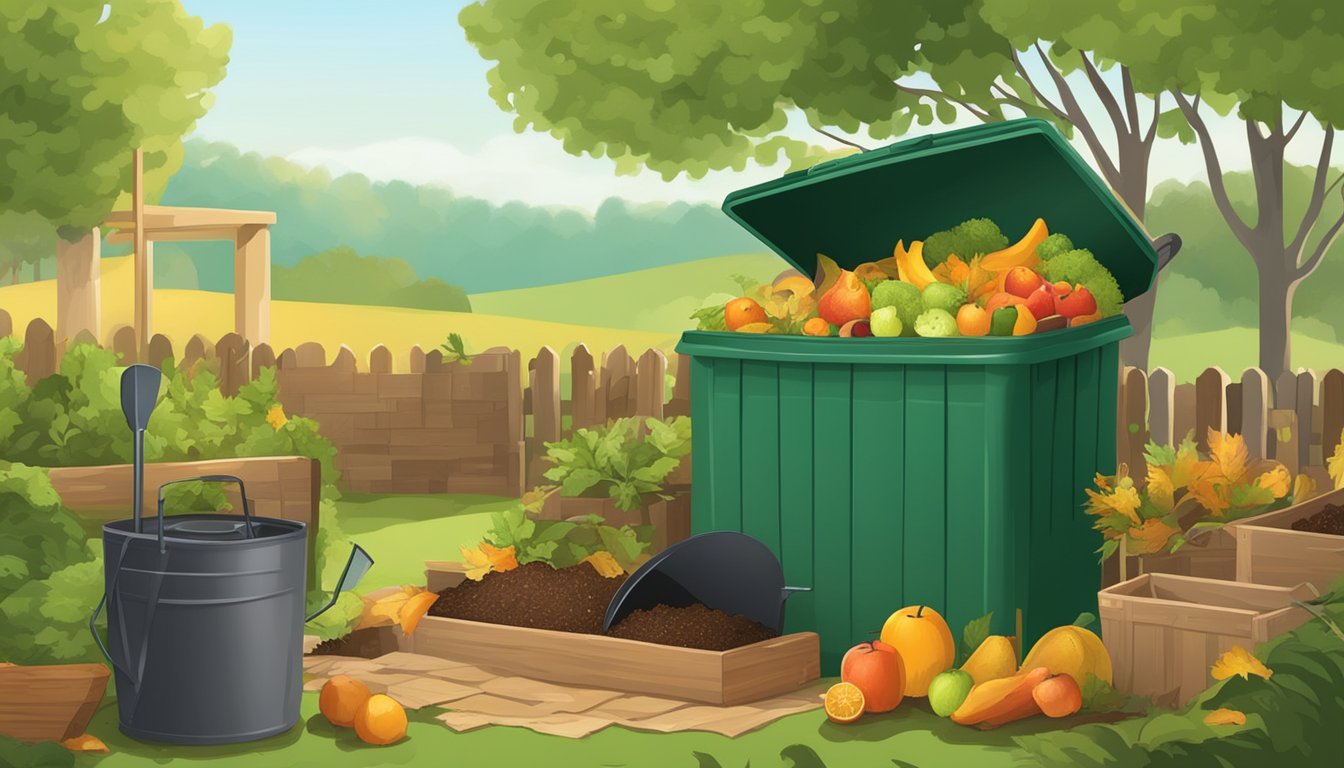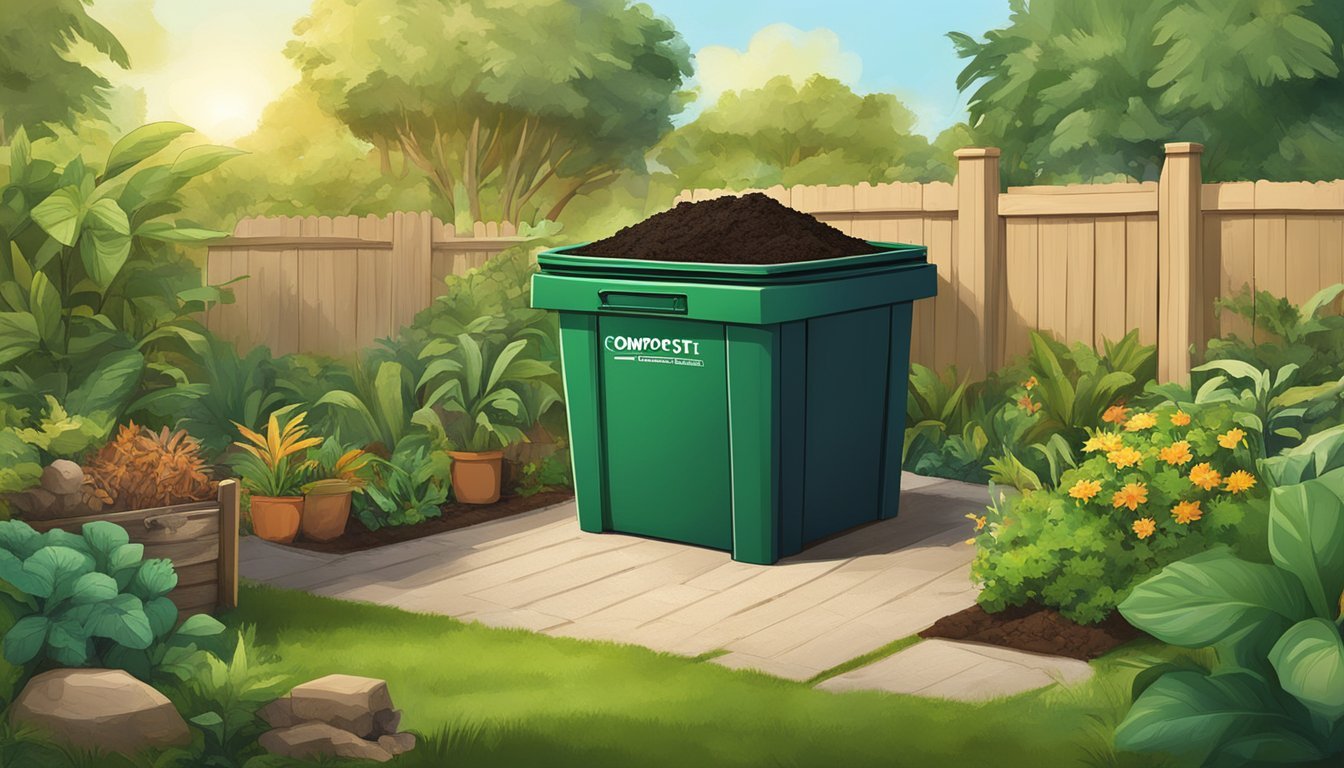Guide to Composting in West Palm Beach, FL
Essential Tips for Local Residents
Composting in West Palm Beach represents a crucial step toward sustainability and a greener lifestyle for its residents. As part of the Solid Waste Authority of Palm Beach County's efforts, composting initiatives are promoted to reduce the volume of solid waste and recycle organic materials. By turning kitchen scraps and yard waste into nutrient-rich soil amendments, the community can lessen the impact on local landfills and foster a healthier environment.
The process of composting harnesses the natural decay of organic substances to create a biological soil enhancer, often referred to as humus. This method not only recycles organic materials, such as fruit peels, vegetable leftovers, and lawn clippings but also enhances the quality of soil for gardening and landscaping. West Palm Beach's climate and ecology are particularly well-suited for composting, further encouraging the practice among Florida residents.
Through education and accessible resources, the Florida Department of Environmental Protection ensures that individuals and businesses alike are informed about the best practices in composting and organics recycling. Local organizations within the community are instrumental in driving the recycling movement, providing services that range from home composting support to large-scale organics recycling programs. Such efforts not only address waste management concerns but also contribute to the long-term sustainability goals of Florida.
The Basics of Composting
Composting in West Palm Beach, FL, transforms organic waste into a valuable soil amendment. It's a straightforward practice with tangible benefits for gardens and the environment.
What Is Composting?
Composting is a natural process that breaks down organic materials such as yard waste and kitchen scraps into a nutrient-rich substance known as compost. It requires a balance of green and brown materials to stimulate decomposition, which is expedited in a compost bin or similar structure.
Benefits of Composting
Composting enhances soil quality by adding nutrients that plants require to thrive. It also reduces landfill waste by recycling organic recycling at a local level. The Solid Waste Authority of Palm Beach County, FL outlines that compost can be reused in gardens, reducing the need for chemical fertilizers.
Composting Do's and Don'ts
Do:
Include a mix of greens (nitrogen-rich) and browns (carbon-rich) in your compost pile.
Maintain moisture and turn the pile regularly to improve aeration.
Don't:
Compost meats, dairy, or oils, which can attract pests.
Include diseased plants, as they might not decompose fully and could harm future plantings.
Incorporating these basic principles will help one establish an effective composting routine in West Palm Beach.
Setting Up Your Compost Bin
Proper compost bin setup is critical to successful composting in West Palm Beach, Florida. The right location, a suitable bin, and a balanced composting environment are foundational for transforming organic waste into nutrient-rich soil for gardens.
Choosing the Right Location
One should select an area that is level, well-drained, and accessible throughout the year. The location should also be convenient for adding materials to the compost bin and close enough to the garden for easy use of the finished compost. Make sure the spot receives a balance of sun and shade; too much sun can dry out the compost, and too much shade can keep it too wet.
Selecting a Compost Bin
Compost bins can range from simple, homemade structures to sophisticated commercial models. The key factors in the selection are size, material, and aeration. An optimally sized bin recommended by the Solid Waste Authority of Palm Beach County is at least 3 feet wide and deep to maintain heat but not so large that it becomes difficult to turn the compost. It should also allow for proper airflow, which is crucial for the composting process.
Creating the Ideal Composting Environment
To initiate an effective composting process, one must achieve the right balance of green (nitrogen-rich) and brown (carbon-rich) materials. They need to layer green materials such as vegetable scraps and manure with brown materials, which include dry leaves and straw. It is recommended to use a ratio of approximately 4 parts browns to 2 parts greens to let the compost bin work efficiently. Maintaining moisture—not too wet and not too dry—is essential, as well as regular turning to aerate the compost and expedite decomposition.
Composting Guidelines for West Palm Beach
In West Palm Beach, Florida, residents are encouraged to adopt composting practices while adhering to local regulations to manage organic waste efficiently.
Local Composting Rules and Regulations
The Solid Waste Authority of Palm Beach County provides backyard composting guidelines to encourage residents in reducing yard waste. Composting at home must be done in properly managed bins to prevent nuisance and adhere to city standards. Utilization of compost bins ensures the recycling of nutrients back into the garden soil.
Yard Waste and Bulk Item Pickup Services
Residents must separate yard waste from other types of trash for pickup. The Solid Waste Authority defines yard waste as:
Leaves
Grass clippings
Brush
Tree and hedge trimmings
Collection guidelines (as outlined by Solid Waste Authority) are:
Yard waste piles must not exceed 6 cubic yards.
Place vegetation in a container such as a paper bag or a garbage can (32-50 gallons).
Bulk item pickups are separate and include larger waste items that cannot be managed through composting or regular waste services.
Managing Compost in Extreme Weather
Composting in extreme weather requires additional attention to maintain the process. Residents should take precautions to:
Cover compost bins during heavy rain to prevent oversaturation.
Maintain aeration and moisture in compost during dry spells.
Awareness of these composting guidelines helps the City of West Palm Beach and its inhabitants maintain a healthy environment and promotes the responsible handling of solid waste. Residents are reminded that improper disposal of yard waste is not only detrimental to the environment but may also be illegal under local regulations.
How to Compost Effectively
Composting in West Palm Beach, FL is a simple yet impactful way to reduce trash and enrich garden soil. It involves balancing green materials like vegetable scraps with brown materials such as dry leaves.
What to Compost
One can compost a variety of organic materials. Greens, which are nitrogen-rich materials, include fruit and vegetable scraps, coffee grounds, and fresh grass clippings. Browns, high in carbon, consist of dry leaves, branches, and even shredded paper. However, it's crucial to avoid adding meat, oil, or any dairy products to the compost as they can create odors and attract pests.
Maintaining Your Compost Pile
A compost pile should be kept as clean as possible to function correctly. This necessitates regular maintenance such as turning the compost to provide oxygen and speed up decomposition. The pile should remain moist, resembling a wrung-out sponge. It's important for the composting process to have a balance, typically a ratio of 4 parts browns to 2 parts greens, according to the Solid Waste Authority of Palm Beach County.
Troubleshooting Common Compost Problems
Common issues with compost piles might include unpleasant odors, which often indicate an excess of green materials or a lack of aeration. By adjusting the green-to-brown ratio and turning the pile more frequently, these issues can be resolved. If the compost is too dry, adding moisture and greens accelerates the process, but adding too much can lead to a slimy, slow-decomposing pile.
Benefits of Composting for West Palm Beach Residents
West Palm Beach residents can notably enhance their environmental footprint and contribute to a greener community through the practice of composting. By integrating this method into their daily routine, they actively partake in advancing soil health, diminishing landfill waste, and promoting community well-being.
Improving Soil and Plant Health
Composting enhances soil fertility and structure, nourishing plants with vital nutrients without the need for chemical fertilizers. West Palm Beach's abundant sunshine provides the perfect climate for rapid compost degradation, resulting in rich soil amendment that is highly beneficial for the local landscaping.
Reducing Waste Sent to Landfills
A significant reduction in the community's waste stream is achieved when organic material is composted instead of being sent to landfills. This aligns with sustainability goals by extending landfill lifespans and cutting down methane emissions, a potent greenhouse gas produced by decomposing waste.
Community and Environmental Benefits
Composting initiatives in West Palm Beach pave the way for stronger community ties and environmental stewardship. They offer excellent volunteer opportunities for residents who wish to contact local environmental groups. This fosters a sense of collective responsibility towards sustainability and the preservation of West Palm Beach's natural beauty.
Getting Involved with Local Composting Initiatives
Residents of West Palm Beach, FL have excellent opportunities to engage with local composting through programs led by the Solid Waste Authority of Palm Beach County, various community-driven volunteer efforts, and by connecting with local composters dedicated to sustainability and reducing waste.
Solid Waste Authority of Palm Beach County Programs
The Solid Waste Authority (SWA) of Palm Beach County offers a comprehensive backyard composting program. They provide resources on how to start composting at home and effectively turn yard waste into valuable compost. Additionally, the SWA engages residents with educational tools and compost bin selection advice to promote household sustainability practices.
Volunteer Programs and Workshops
For those interested in hands-on experience, local volunteer programs and workshops frequently occur, guiding participants through the nuances of composting while contributing to community greening efforts. These workshops are a valuable way to learn about organics recycling and meet fellow environmentally conscious citizens of Palm Beach County.
Connecting with Local Composters
Joining the Community Composter Coalition can be an effective way to get involved with composting at a community level. This network includes agencies and organizations that operate active composting sites and programs, and it is an excellent resource for sharing experiences, learning best practices, and inspiring new composting projects within the County.
Frequently Asked Questions About Composting
When embarking on composting in West Palm Beach, residents often have questions about best practices. This section addresses common queries to help ensure a successful composting experience.
Can I Compost Citrus Peels?
While one can compost citrus peels, they should be added in moderation. Citrus peels are acidic and can take longer to decompose. They may also deter beneficial composting worms if the acidic content is too high.
Do I Need to Add Worms to My Compost Pile?
Adding worms to a compost pile is not mandatory, but they can significantly accelerate the breakdown of organic matter. If your compost pile is outdoors and has contact with the soil, worms may naturally find their way into it.
Is It Safe to Compost Glossy Paper?
It is generally discouraged to compost glossy paper. The inks and coatings used on glossy paper can contain heavy metals and other contaminants that are not suitable for compost intended for garden use.







